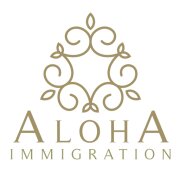Best Collaborative Law Lawyers in Honolulu
Share your needs with us, get contacted by law firms.
Free. Takes 2 min.
Free Guide to Hiring a Family Lawyer
List of the best lawyers in Honolulu, United States
About Collaborative Law in Honolulu, United States:
Collaborative Law is an alternative dispute resolution process that aims to settle legal disputes amicably without going to court. In Honolulu, United States, Collaborative Law provides a voluntary and confidential approach to resolving family law matters, such as divorce, child custody, and property division. This process encourages open communication and problem-solving rather than adversarial litigation.
Why You May Need a Lawyer:
While Collaborative Law promotes cooperation and open dialogue, it is still essential to have a lawyer by your side. A lawyer experienced in Collaborative Law can provide valuable legal advice and guidance throughout the process. Some common situations where you may require legal help in Collaborative Law include:
- Divorce proceedings
- Child custody and support disputes
- Asset and property division
- Alimony or spousal support
- Modifications to existing agreements
Local Laws Overview:
Understanding the key aspects of local laws relevant to Collaborative Law in Honolulu, United States is crucial. While specific laws can vary, some common factors to be aware of include:
- Honolulu follows the Uniform Collaborative Law Act, which provides guidelines and procedures for the collaborative process.
- Collaborative Law agreements in Honolulu are legally binding, and the parties involved must commit to resolving disputes without court intervention.
- Confidentiality is a significant aspect of Collaborative Law in Honolulu, ensuring that discussions and negotiations during the process remain private.
Frequently Asked Questions:
1. What are the advantages of Collaborative Law over traditional litigation?
Collaborative Law promotes open communication, cooperation, and a focus on finding mutually beneficial solutions. It can save time, money, and emotional stress compared to traditional litigation. It also allows the parties involved to maintain more control over the outcome.
2. Can Collaborative Law work for complex or high-conflict cases?
Yes, Collaborative Law can be effective for complex cases as well. It allows parties to use neutral experts, such as financial advisors or child specialists, to assist in reaching a fair agreement. However, it may not be suitable if there is a significant power imbalance between the parties or if there is a threat of domestic violence.
3. What happens if we cannot reach an agreement through Collaborative Law?
If an agreement cannot be reached through Collaborative Law, the parties will need to hire new lawyers and proceed with traditional litigation in court. This encourages both parties to work towards a mutually acceptable resolution during the collaborative process.
4. Can I use the same lawyer as my spouse in Collaborative Law?
No, it is not typical for spouses to share the same lawyer in Collaborative Law. Each party should have their own independent legal representation to ensure their interests are protected and that they receive unbiased advice.
5. How long does the Collaborative Law process take?
The duration of the Collaborative Law process depends on the complexity of the case and the willingness of both parties to cooperate. It can be faster than traditional litigation but may still take several months or longer, depending on the circumstances.
Additional Resources:
If you require legal advice or more information about Collaborative Law in Honolulu, United States, consider reaching out to the following resources:
- Honolulu Collaborative Law Institute: A local organization that provides information and resources on Collaborative Law practitioners in Honolulu.
- Hawaii State Judiciary: The official website of the Hawaii State Judiciary offers resources, forms, and information on family law matters, including Collaborative Law.
- Local Bar Associations: Contact your local bar association for referrals to experienced Collaborative Law attorneys in the Honolulu area.
Next Steps:
If you find yourself in need of legal assistance in Collaborative Law, follow these steps:
- Research and gather information about Collaborative Law and its benefits.
- Identify potential Collaborative Law attorneys in Honolulu through referrals or online directories.
- Schedule consultations to meet and discuss your case with several attorneys to find the best fit for your needs.
- Prepare necessary documents and information to provide to your chosen attorney.
- Engage in the Collaborative Law process with the guidance and support of your attorney.
Lawzana helps you find the best lawyers and law firms in Honolulu through a curated and pre-screened list of qualified legal professionals. Our platform offers rankings and detailed profiles of attorneys and law firms, allowing you to compare based on practice areas, including Collaborative Law, experience, and client feedback.
Each profile includes a description of the firm's areas of practice, client reviews, team members and partners, year of establishment, spoken languages, office locations, contact information, social media presence, and any published articles or resources. Most firms on our platform speak English and are experienced in both local and international legal matters.
Get a quote from top-rated law firms in Honolulu, United States — quickly, securely, and without unnecessary hassle.
Disclaimer:
The information provided on this page is for general informational purposes only and does not constitute legal advice. While we strive to ensure the accuracy and relevance of the content, legal information may change over time, and interpretations of the law can vary. You should always consult with a qualified legal professional for advice specific to your situation.
We disclaim all liability for actions taken or not taken based on the content of this page. If you believe any information is incorrect or outdated, please contact us, and we will review and update it where appropriate.









